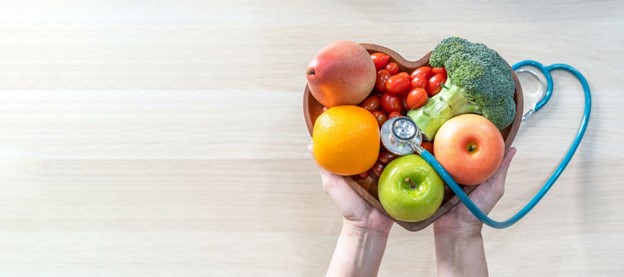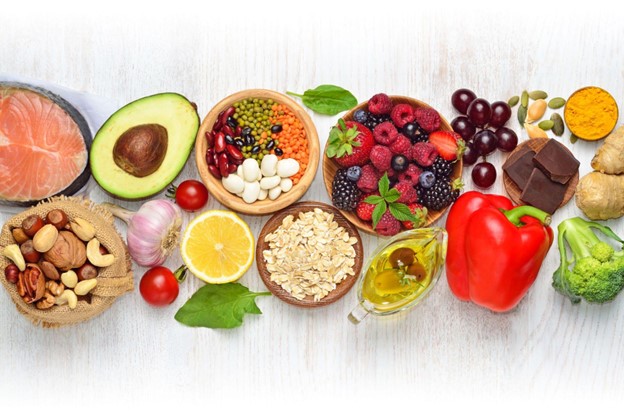A focus of my blog is Health/Wellness. A critical part of our personal health is the food we consume. As such we want the most nutrient dense food that we can get. The following guest post is entitled, Maximizing Nutrient Density: How to Pack Your Meals with Essential Nutrients.
* * *

It seems like there’s a new diet trend being pushed on you every month. Low-carb, high-carb, Mediterranean, Whole30, and many more. It’s hard to keep up with all the eating plans making the rounds in your social circles.
Although diets come and go out of style, your body’s needs don’t change. Vitamins, protein and the like are building blocks for a healthy body. Nutrient-dense foods are your shortcut to maximizing your wellness in body and mind.
What is Nutrient Density?
Nutrient density is the amount of essential nutrients per calorie consumed. Eating nutritiously isn’t necessarily about avoiding high-calorie foods. A high-calorie food can still be a good choice if it’s packed with the nutrients you need most.
For example, 1 ounce of almonds (about 23) is 165 calories. That’s higher than many snacks. However, you’re also getting protein, monounsaturated fat, fiber, and good vitamin E and calcium.
What Nutrients Should You Focus On?
Your ideal diet includes a mix of colors, flavors, and textures. This lets you take in quality nutrition while staying within your daily calorie limit. Some of the main kinds of nutrients include:
● vitamins and minerals
● antioxidants
● amino acids
● protein
● fiber
● slow-digesting carbs
● probiotics
Use these as a blueprint to tweak your diet. For example, what if you’re worried about gut health? Incorporate probiotics into your meal planning.
Why Choose Nutrient-Dense Foods?
Highly nutritious foods can help you lose weight and gain muscle healthily and sustainably. They explode across your plate in a rainbow of colors and flavors, satisfying hunger without being high in calories. You’ll avoid the blood sugar crashes and random cravings that nutrient-light junk food can give you.
These foods help your body fight illness and disease. The best healthcare is prevention, after all. Nutrient-dense meals and immune supplements help you avoid getting sick, and bounce back faster when a bug gets you. They also reduce the chances of serious issues like heart disease, cancer, and diabetes.
You feel better when you’re fueling yourself with nutrient-dense food. These are packed with naturally energizing vitamins, amino acids, and more. They boost your mood and improve your focus and ability to learn. Giving your body the nutrition it needs helps you be the best version of yourself.
Too Much of a Good Thing?
Can you overdo it on nutrients? This sometimes happens with concentrated vitamin supplements, but food works differently. You would have to eat a hundred pounds of fish a day to eventually reach Vitamin D toxicity levels.
One exception is with fiber. Many people who suddenly increase their fiber intake have to deal with uncomfortable side effects. These include gut issues like constipation and flatulence. If that’s a concern, just scale up on fiber a little at a time to let your body get used to it.
Choosing the Right Foods
In general, you’ll want to aim for colorful produce, lean proteins, and whole grains. Eat heavily processed foods in moderation. For more specific advice, take a look at the food labels. They tell you what you need to know.
How many calories are you looking at? What do the percentage daily values look like? Remember that something like avocados can be high-calorie but also packed with nutrients.
Nutrient Dense Superstars
Nutrient-dense foods are probably right there in your pantry, fridge, or local grocery store. You don’t need to spend a lot of money on expensive, imported superfoods or eat the same things every day. However, some foods are so nutrient-dense they deserve a special mention. These superstars of the culinary world are worth trying to work into your daily diet:
● dark leafy greens like spinach and kale
● cruciferous vegetables like broccoli and cauliflower
● brightly colored, antioxidant-rich veggies like tomatoes and bell peppers
● all kinds of berries
● citrus, mangos, and kiwi fruit
● avocados
● beans and peas of all types
● whole eggs
● cottage cheese and Greek yogurt
● lean chicken
● lean cuts of beef
● fish like mackerel, cod, and tilapia
When planning your meal, remember variety isn’t just the spice of life, it’s also the keystone for a healthy week’s worth of food. No superfood has everything you need. Instead, these nutritional powerhouses complement each other. Some pack on protein. Others bring the fiber you probably don’t get enough of. The rest help your energy levels and immune system in subtle but important ways.

Cooking the Right Way
There are quite a few cooking methods that will preserve the nutrients in our food. Think about:
● baking
● roasting (in minimal oil)
● frying (ditto)
● steaming
● boiling
● fermenting
● ‘cooking’ in acids or enzymes (think ceviche or tenderizing meat with papaya)
The real trick here is to not overcook. That breaks down nutrients and causes others to vanish into the boiling water or sauce. The resulting food will have lost a lot of its flavor, texture, and health benefits.
That’s what not to do. What about things to improve the nutrient density of your favorite dishes?
Start by bringing the flavor. A lot of spices and herbs are rich in vitamins, minerals, and antioxidants. Why not experiment with:
● cloves
● cinnamon
● mint
● rosemary
● oregano
● saffron
● turmeric
Now what can you add to increase the nutrient value? Maybe try stirring flax or hemp seeds into food to add fiber and omega 3s. You can incorporate healthy fats and protein into sauces and soups with a dollop of yogurt. Fermented kimchi is super flavorful, adds to your daily dose of vegetables, and is loaded with probiotics.
Healthy Eating Made Easy
Diet trends come and go, but the fact remains that our bodies need certain nutrients to function. These essential building blocks keep us energized and feeling at our best. Instead of looking at foods through the lens of good versus bad, it’s better to consider them by a clear metric.
Nutrient density is a concept that simplifies diet culture down to a simple question. What’s the ratio of nutrients in this particular food? When you learn to read food labels, you demystify cooking, eating out, and convenience foods.
Megan Isola

Megan Isola holds a Bachelor of Science in Hospitality and a minor in Business Marketing from Cal State University Chico. She enjoys going to concerts, trying new restaurants, and hanging out with friends.
